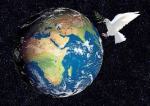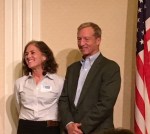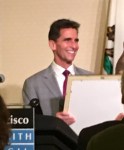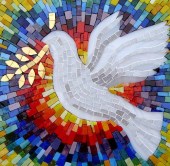 Holiday letters? I am definitely ambivalent. It is lovely catching up with old friends (many of whom, on our holiday list at least, I only hear from once a year.) I’m interested in what’s been happening in their lives over the past year. I’m somewhat less interested in what’s been happening in their children’s or grandchildren’s lives although they’re usually pretty spectacular. But too many paragraphs about the latter and my eyes tend to glaze over. I resist all political messages – whether I agree with them or not. I love the letters that include remarks about books the writer has enjoyed over the year.
Holiday letters? I am definitely ambivalent. It is lovely catching up with old friends (many of whom, on our holiday list at least, I only hear from once a year.) I’m interested in what’s been happening in their lives over the past year. I’m somewhat less interested in what’s been happening in their children’s or grandchildren’s lives although they’re usually pretty spectacular. But too many paragraphs about the latter and my eyes tend to glaze over. I resist all political messages – whether I agree with them or not. I love the letters that include remarks about books the writer has enjoyed over the year.
This year my own greeting was a learning experience.
I send holiday letters for the reason given at the outset of ours for 2018: Having reached the point at which we figure we’d better keep in touch or somebody will say, Are Fran & Bud still around? . . . And sometimes I break my own preference rules as happens at the end of this year’s letter from our house: Without getting overly political, we worry about the future of the ever-warming planet, and this being Christmastime we yearn for the day when our country will welcome the stranger, protect the poor, care for those less fortunate, all those things Jesus talked about.
Because many of our year-end missiles go to friends who are Jewish (not to mention agnostic, Buddhist, atheist, you name it) I usually include an expansion of some sort when I detour into my own strong Christian faith. This year, searching for accuracy, I mentioned to my pastor friend that I knew there was something very similar to that last line in the Jewish tradition. “Sure,” she said, “Tikkun Olam.” Ah, so. While Christians celebrate a Messiah who preached all those things not being done very effectively right now, Jews seek to prepare the world for a coming Messiah – by welcoming the stranger, protecting the poor, caring for those less fortunate. “Repairing the world,” is how my pastor friend put it, and she is best buddies with a nearby rabbi and both of them know stuff. So if I don’t have this theologically right, I will be happy to forward your comments to them.
In any event, it is worth considering. Perhaps as we emerge from the darkest days (I’m talking Solstice here) we may still welcome a stranger, try to help someone less fortunate, repair the world. Worth a try.
Oh, and books. On Dupont Circle: Franklin and Eleanor Roosevelt and the Progressives Who Shaped Our World (James Srodes) somehow gave me hope for years ahead, and After Emily: Two Remarkable Women and the Legacy of America’s Greatest Poet (Julie Dobrow) is fascinating. All the Light We Cannot See (Anthony Doerr) is a treasure.
Happy New Year to us all.

 OK, this is San Francisco: love and peace reign. But it’s also Thanksgiving: gratitude and community. Celebrations of love, peace, gratitude and community are taking place not just on the left coast but across the country, as we begin to exhale after a bitterly troubled few months. Exhalation in community can be a great way to start the day.
OK, this is San Francisco: love and peace reign. But it’s also Thanksgiving: gratitude and community. Celebrations of love, peace, gratitude and community are taking place not just on the left coast but across the country, as we begin to exhale after a bitterly troubled few months. Exhalation in community can be a great way to start the day.





 horrors.” She went on to cite
horrors.” She went on to cite 
 Chiu spoke of San Francisco as being a city on a hill, a city of light, and everyone, having been given candles on entering the sanctuary, raised their lighted candles in a room in which the light until that moment was dim.
Chiu spoke of San Francisco as being a city on a hill, a city of light, and everyone, having been given candles on entering the sanctuary, raised their lighted candles in a room in which the light until that moment was dim.